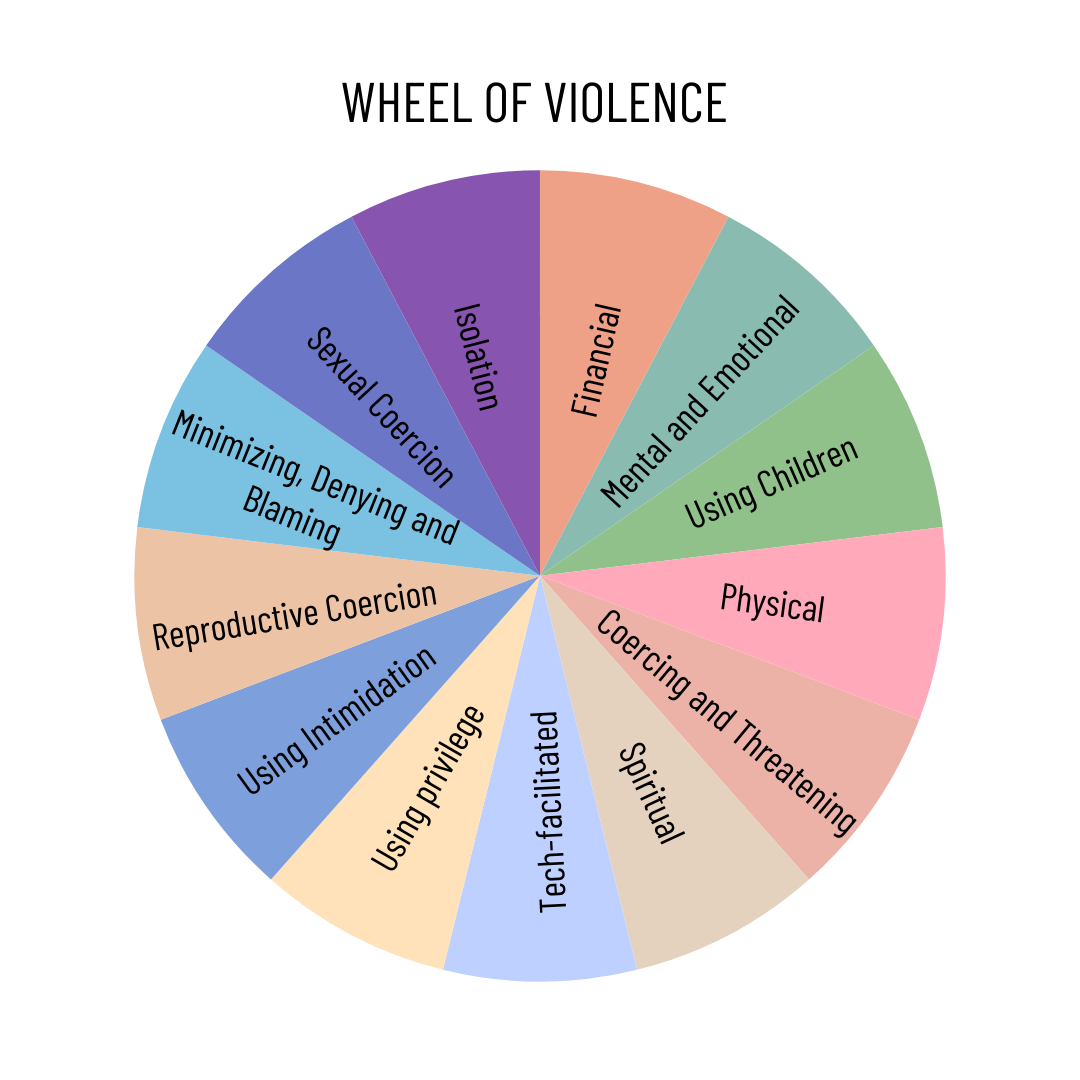What is intimate partner / domestic violence?
Intimate partner violence (IPV, often called Domestic Violence) is any form of violence committed by legally married, separated, divorced, common-law, dating and other intimate partners. Abusive behavior can be present in many ways, including physical, emotional, sexual, and financial abuse. It includes any behavior used to scare, intimidate, manipulate, hurt, and injure someone. Incidences of domestic violence are rarely isolated, and usually escalate in frequency and severity. It may ultimately lead to serious physical injury or death. Intimate partner violence occurs in heterosexual and same-sex relationships and among men, women and trans people. However, the most common perpetrators of police-reported violence against women are their current or former male intimate partners.
What are the types of violence and some examples?
- Financial abuse: preventing someone from working or maintaining employment, asking for their money, not giving them access to the family income
- Mental and emotional abuse: name calling, gaslighting*, humiliating someone, making someone feel guilty
- Using children: using the children to relay messages, threatening to remove the children from the survivor, using access visits to harass the survivor
- Physical abuse: the act of hitting, shaking, choking, pushing, biting, grabbing an individual to inflict harm, or using someone's body or strength against another individual
- Coercing and threatening behaviour: making and/or carrying out threats to hurt someone or themselves, reporting survivors to Child Welfare agencies, making survivors drop charges
- Spiritual abuse: using someone's spiritual beliefs to manipulate, dominate, or control them, preventing someone from engaging in their cultural practices or attending places of worship, destroying of spiritual items
- Tech-facilitated abuse: use of technologies to facilitate virtual or in-person harm including observing and listening to a person, tracking their location, to scare, intimidate or humiliate a person
- Using privilege: using status to manipulate someone, making all major decisions, being the one to define each partners roles/duties within relationship, using system against you
- Using intimidation: displaying weapons, destroying property, abusing animals, making the survivor afraid by using actions, and gestures
- Minimizing, denying and blaming: making light of the abuse, not taking their concerns seriously, gaslighting*, shifting the responsibility of the abuse to the survivor
- Isolation: preventing someone from leaving the home, limiting who the survivor can talk to or go see
- Reproductive coercion: controlling reproductive choices, pregnancy outcome and/or access to health services
- Sexual coercion: manipulating someone to engage in unwanted sexual activity, refusal of STI protection or stealthing*, unwanted sexual touching
*Gaslighting is the act of manipulating someone into questioning their own memory and powers of reasoning
*Stealthing is when both parties agree to engage in a sexual act with protection (condom, dental dam), and one party either lies about putting on protection or removes it while engaging in the sexual act without the other parties knowledge or consent.
Why is it difficult to leave?
Abusive relationships are extremely complex situations and it takes a lot of courage to leave. A survivor may feel like they do not have the support to leave the abusive relationship – they may not have any income or money, housing opportunities, friends and family as support. Some survivors may not have access means to call for emergency services, or have a way to get to a shelter or another safe space. Some survivors believe it is in the children's best interest to have both parents in the home, particularly if the abuser does not physically harm the children. Some victims may not recognize about how dangerous their abuser may be, believing that if they could be better partners, the abuse would stop.
Many people are unaware that women are at the highest risk of lethal violence when leaving abusive partners. The survivor knows their own experience best and understands that threats to their safety are real when coming from their abuser. Abuse doesn't always stop when survivors leave the shared home – their abuser may continue to stalk, harass, and terrorize the survivor.
Abuse is about power and control. When a survivor leaves their abusive relationship, they threaten the power and control their partner has established over the survivor's agency, which may cause the partner to retaliate in harmful ways.

